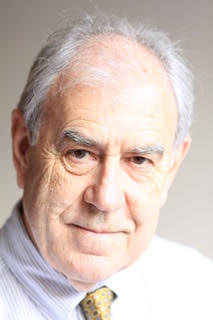Ukraine: Watch This Space
February 25, 2015
UK Prime Minister David Cameron has announced his decision to send a contingent of 75 trainers to Ukraine as a demonstration of support for Kiev in its fight against Russian supported rebels in South Eastern Ukraine. The deployment will provide instruction in command procedures, tactical intelligence, battlefield first aid and logistics.
The US had already decided to send advisors to train four companies of the Ukrainian National Guard at the Yavirov training area, near the Polish border.
Expert assessment of Ukrainian military capabilities indicates that they could benefit from such training. There is, apparently, also the view amongst those wishing to strengthen Ukraine, that providing training would be seen by the Russians as less provocative than sending arms to Ukraine.
Given his current form in foreign affairs and general predilection for expressed muscularity, towards hard targets such as the President of Indonesia, and soft targets like the Chair of the Australian Human Rights Commission, it seems a fair question to ask; when may we expect Prime Minister Abbott to announce the dispatch of an Australian military contingent to Ukraine?
If a decision to join the US and now the UK and send Australian military advisors to Ukraine is now occupying some space in the Prime Ministers imagination, we should hope that, at least his advisors, bear some of the following in mind:
- The issue over Ukraine is essentially a European one. It is complex and has been exacerbated by intervention from both East and West.
- NATO, of which neither Ukraine nor Australia are members is asserting an interest but its role is a part of the underlying problem perceived by Russia: the continual movement of NATO eastwards. That Russian apprehension has been encouraged by the sentiment expressed in the Ukrainian Parliament that Ukraine should apply to join NATO.
- The decision by the UK to get further involved reportedly reflects Prime Minister Camerons reaction to criticism in conservative circles that he was left out of the Minsk negotiations. How humiliating; the Frogs and the Huns were there, standing up to the Czar, but not the bulldog! This is the sort of nationalist posturing that abounded in the lead-up to the First World War. Does it really matter who negotiated a truce?
- Nothing should be done to make it easier for Russia to further dismember Ukraine. The US and UK decisions are designed to make that harder but the idea that such measures will be determinative is questionable. But, that may result in the further elaboration of the Russian narrative that it is being threatened by NATO.
- The major effort required on the Ukraine crisis continues to be in diplomacy, pursuant to the Minsk agreement. A positive development in the diplomacy is that it has now been broadened to the United Nations. Australia should participate actively in that wider discussion and do more than simply echo the US/UK position.
- Any decision on direct Australian assistance to Ukraine should be based on a rationale which had palpable Australian interests at its core, including that of fostering an end to, not an escalation of armed conflict. Recourse to the generic argument that it is always in our interest to support western causes, as defined in each case primarily by Washington, is dangerously uncritical, as for example the disasters in Vietnam and the illegal invasion of Iraq demonstrated.
On the Alliance issue, it was striking that US Secretary of State John Kerry in addressing the US Senate Foreign Relations Committee last week, stated publicly that the Russians had been lying to him, to his face. Without doubting the truth of this assertion, for which there are also other sources, two points are worth mentioning.
First, the Russians are hardly alone in employing duplicity in the conduct of their international relations. If willingness to tell the truth were the entry ticket to diplomatic meetings, there would never be a quorum.
Second, far more important than to fulminate, self righteously, is to determine; the objectives of relevant conduct, what interests are being pursued and are in conflict, so that a realistic possibility of finding a durable solution is encouraged. A useful ally of the US would seek to encourage such thinking.
In a recent comment, Dmitri Trenin, Head of the Moscow bureau of the Carnegie Foundation for International Peace offered two persuasivethoughts.
A year after the Maidan revolution many Ukrainians have become disillusioned with their government, which is woefully unable to tame corruption and improve the lives of ordinary Ukrainiansif the truce in the east of the country holds, the future of Ukraine will depend on how it manages reform and popular dissent.
And, on the larger picture:
Ukraine is not the centre of the geopolitical universe, neither is Russia central to the future of the globe. Yet Ukraine and the global crisis over it point to the start of a new period in world politics.
Trenin appears to have hit a couple of nails on the head and in such circumstances, consideration of Australias role and interests in all of this needs very deep and fresh consideration.
Richard Butler AC is a former Australian Ambassador to the United Nations, now Distinguished Scholar of International Peace and Security at Penn State University.
